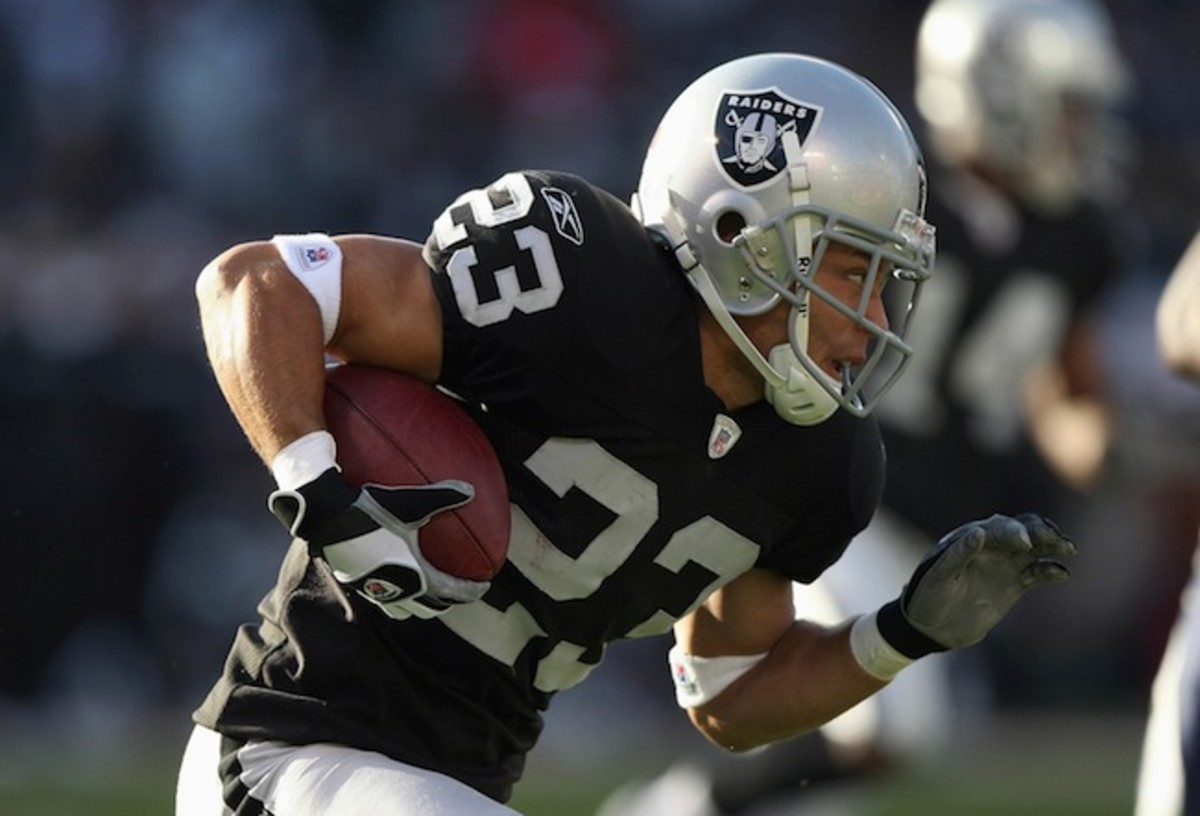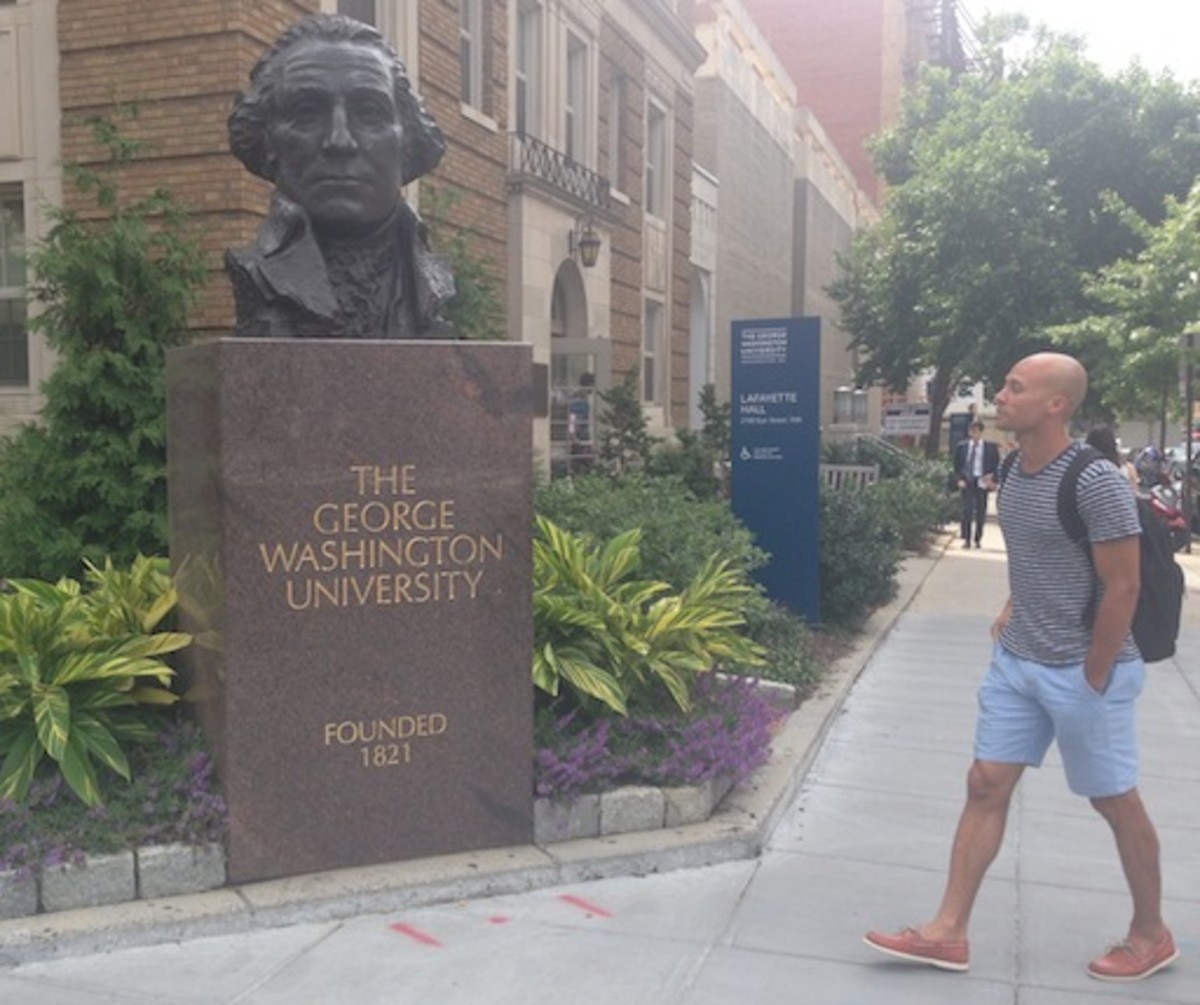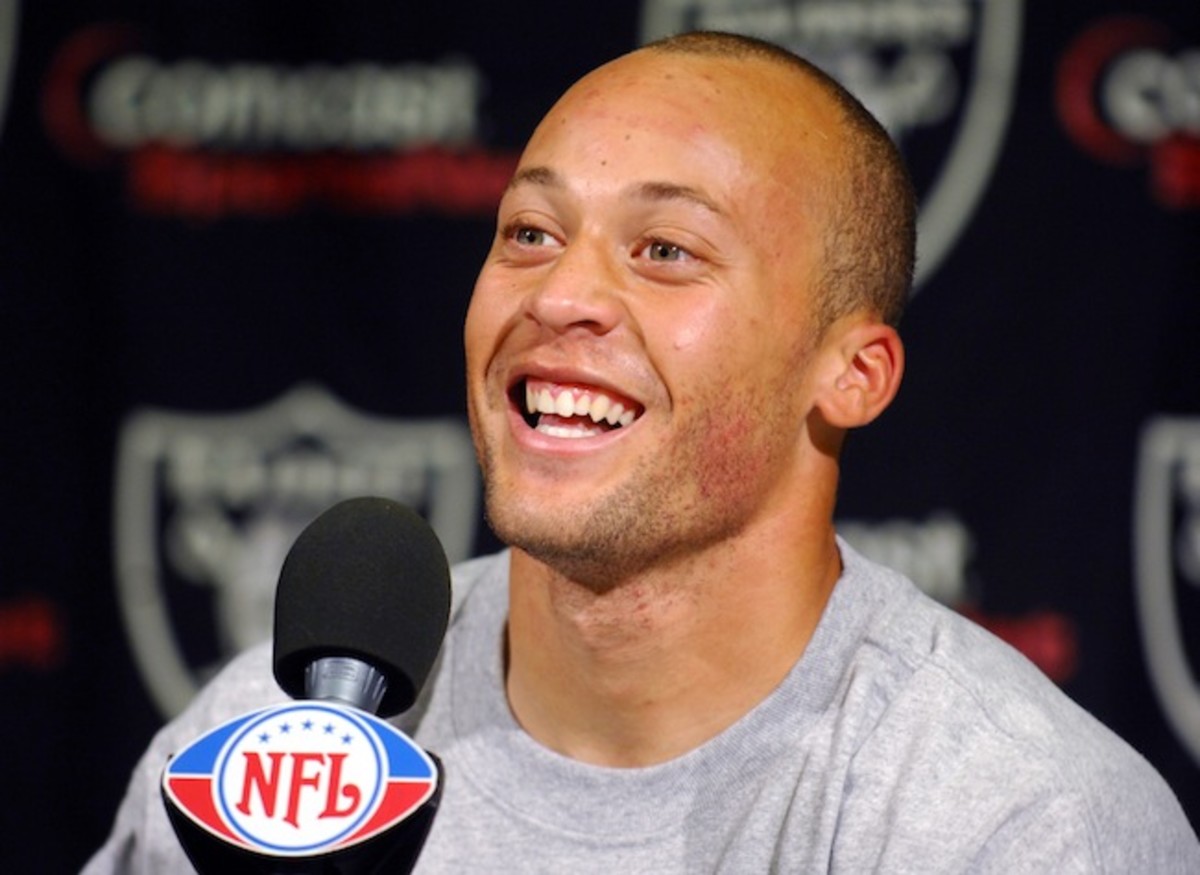Chris Carr: From the Gridiron to Grad School


When you learn that Chris Carr is a former NFL player, you might expect to meet a flashy, cocky extrovert, but what you actually get is a personable, perceptive introvert — who happens to be a graduate student at George Washington University. “He is such an under-the-radar type of guy, so it's still very surprising to most that he is a former NFL player,” says Jummy Obayanju, a classmate of Carr’s at GWU.
Carr played nine years in the NFL as a cornerback and return specialist before announcing his retirement in the spring of 2014. It’s pretty common for a player to retire at age 30. Something not so common about his retirement? Carr wasn't leaving football so he could relax. He was retiring to go to law school.
“I took con-law [constitutional law] in [my] junior year of college, and I enjoyed that class more than I enjoyed football ever,” says Carr. “I remember thinking about the law, and applying the law, and that’s when I knew I wanted to be a lawyer.”
Carr narrowed down his law school choices to UCLA and GWU, which is in Washington, D.C. “I think I most likely wanted to end up in California in the long run, and my thought process was, If that’s the place where I’m most likely going to be in the long run, might as well go to D.C. just for law school and enjoy the East Coast,” explains Carr.

Carr is a master at balancing two things at once, whether it’s school and sports, football and family, or family and law school. Carr and his wife, Sarah, live outside of D.C. with their two children, who are two and four years old.
Even as a kid, Carr excelled at multitasking. He played football and basketball, and he was good enough to play high school basketball as a point guard. “Basketball was my first love,” he says. “I was really good when I was younger and played varsity all four years, but I wasn’t the best shooter. [That] is probably good because if I were a better shooter, I would probably have played college basketball and wouldn’t [have made] it professionally and wouldn’t have played in the NFL.”
A man with a backup plan
You might ask yourself, How did an NFL player end up in law school? Maybe the better question is: How did a future law student end up in the NFL?
After playing four years at Boise State, Carr had everything set up to go to law school. “I already took [the right test] and had my letters of recommendation ready,” he says. Carr knew that the chances of making it to the NFL were slim, so he was ready to apply for law school the year he entered the draft.
Luckily for football fans, he was wrong about his chances. He was at the home of Gerald Alexander, a teammate from Boise State, watching the draft. Surprisingly, Carr was not selected. Hours after the draft, his phone began to ring. The Raiders and the Falcons, two teams that had expressed interest in drafting him, wanted to sign him. It was a tough decision, but he eventually decided to begin his career in Oakland.
After he signed, he embarked on a six-team, nine-year journey that included stints on the Vikings, Raiders, Saints, Ravens, Chargers, and Titans. In only three years in Oakland, he became the Raiders’ all-time kickoff return yardage leader.
According to Carr, the best team to play for was the Ravens. He said that players from every level interacted with each other and that they could joke around and then immediately get serious for a game.
“Contrary to...a lot of people’s perception of NFL players, a majority of your teammates are really cool people,” says Carr. “A majority of the people are humble; they’re good people to be around; they’re not arrogant; they’re easy to talk to; they’re very accommodating; they’re willing to help you out; and they care about you.”

Now in his second year at GWU, Carr is representing immigrants in court to help them stay in the country legally. He said that could see himself being a trial lawyer, which is a type of lawyer who goes to court.
To kids who enjoy sports and school, Carr provides the following advice: Have no fear. You can do well in school while also pursuing sports and being social, as long as you’re organized with your time — and, of course, never give up your dreams.
Photographs: Jed Jacobsohn/Getty Images (action); Jenny Vrentas/The MMQB (on campus); Kirby Lee/Getty Images (podium)
